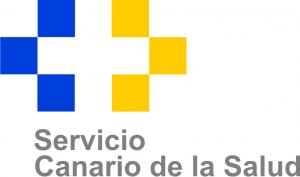Servicio Canario de la Salud

Servicio Canario de la Salud (SCS) is a regional governmental organisation responsible for the provision of public health services and promoting, funding and managing health research activities on the Canary Islands (Spain). The HTA Unit of SCS (SESCS) is part of 1) the Spanish network of Health Technology Assessment (HTA) funded by the Spanish Ministry of Health to support national decision making (RedETS); and 2) the European Network of HTA (EUnetHTA). Currently SESCS leads the Scientific Committee of the Spanish Network in Health Services Research for Chronic Diseases (REDISSEC). At international level, SESCS has participated (P) or coordinated (C) several research projects and Joint Actions funded by the EC, such as BURQOL-RD (C), IC-Health (C), EUROPLAN (P), ASDEU (P), EMPATHIE (P), RARE BestPractices (P), Mastermind (P) or CHRODIS (P). SESCS has developed an intense research activity in cost of illness and cost-effectiveness studies of health interventions, usually linked to the assessment of health related quality of life. The SESCS research team is multidisciplinary (medical doctors, health economists, statisticians, sociologists, psychologists, anthropologists, engineers, etc.) with experience in HTA quantitative and qualitative methods, such as systematic reviews, meta-analysis, budget impact analysis and economic evaluations. Besides, the group has scientific experience on methods to promote patients participation on scientific activities and HTA.
Main tasks in the project
SESCS will be in charge of the validation for feasibility, transferability and applicability of methods and tools developed in WP1-WP5. Measurement methods will be applied within the selected set of illustrative mental diseases in Spain, a country without an established national unit cost programme and with a decentralised healthcare system allowing for the assessment of within-country variations. Applicability of tools will be validated in the context of a real-world HTA project focused on one of the selected mental diseases in Spain.
Expertise of staff members involved
 Dr Pedro Serrano-Aguilar (Principal Investigator)
Dr Pedro Serrano-Aguilar (Principal Investigator)Pedro Serrano-Aguilar (MD, PhD, MPH), Head of the Health Technology Assessment (HTA) Unit at the Canary Islands (SESCS) and President of the board of Directors of the Spanish Network for HTA (Ministry of Health). He is also part of the EUnetHTA Joint Action-III. Currently, he is leading the Scientific Committee and a research team at REDISSEC (Spanish Network of Health Services Research for Chronic Diseases). Apart from his administrative responsibilities, he has published more than 100 scientific papers in international journals. He has been member of the E-Rare JTC Scientific Evaluation Committee from 2011-2014, of the COST calls from 2013-2014, and of the Romanian Executive Agency for Higher Education, Research, Development and Innovation (UEFISCDI) since 2014.
For us, PECUNIA is also a methodological research initiative central for the fields of Health Technology Assessment (HTA) and Health Services Research, which will help to sustain, strategically, the construction of the European Union (EU). PECUNIA will go parallel to the EUnetHTA-III Joint Action and will feed the ground to support and facilitate HTA processes along EU. PECUNIA will help to overcome current differences and barriers in feasibility, validity and acceptability of economic evaluations in evidence-informed decision making in EU.
 Laura Vallejo-Torres
Laura Vallejo-TorresLaura Vallejo-Torres (BSc, MSc, PhD) has a PhD in Health Economics from University College London (UCL) and a MSc in Health Economics from the University of York. She has worked at the Health Economics Research Group at Brunel University and as senior health economist at UCL. She is currently employed at University of Las Palmas and collaborates with SESCS on methodological issues around economic evaluation. She is vice-president of the Spanish Association of Health Economics.
 Lidia García-Pérez
Lidia García-PérezLidia García-Pérez (BSc, MSc) is a health economist with 15 years of experience in health services research and HTA at SESCS. She has conducted several projects that included economic evaluation, systematic review of effectiveness, systematic review of cost-effectiveness and primary studies (observational and experimental studies).
 Lilisbeth Perestelo-Pérez
Lilisbeth Perestelo-PérezLilisbeth Perestelo-Pérez (MPsych, PhD) is a leading investigator in the development, evaluation and implementation of decision support interventions for shared decision making in Spain. With a PhD in Clinical and Health Psychology awarded in 2007, she completed postdoctoral fellowship at Mayo Clinic (2008-2009) and at Massachusetts General Hospital (2015) on shared decision making. She is a co-founder of the Latin American Network for Medical SDM and Patients’ Participation.
 Renata Linertová
Renata LinertováRenata Linertová (BSc, MSc) is a senior researcher in the field of HTA. She is specialized in economic evaluations, systematic reviews of cost-effectiveness and cost-of-illness studies. She has coordinated and participated in national and international health services research projects. She was Project Manager of a European project of cost-of-illness in rare diseases (BURQOL-RD) (2011-2014).
 Cristina Valcárcel-Nazco
Cristina Valcárcel-NazcoCristina Valcárcel-Nazco (BSc, MSc) holds a degree in Statistics and she is a health economist with eight years of experience in health services research and HTA at SESCS. She is specialised in economic evaluations, systematic reviews of effectiveness and systematic reviews of cost-effectiveness. She has participated in several national and international health services research projects in the field of economic evaluations.